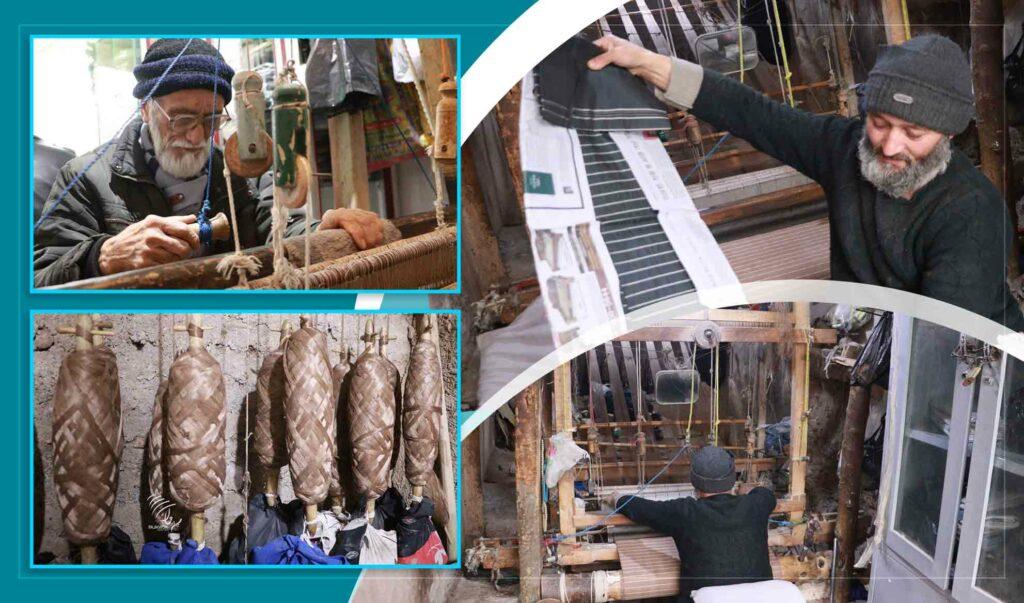HERAT CITY (Pajhwok): The rhythmic sounds of weaving machines can still be heard in the historic alleys of western Herat province. Once a thriving industry, silk weaving is now on the verge of extinction, with only a handful of artisans striving to keep this ancient craft alive.
Silk weavers in the province express deep concern over the declining state of their industry.
Speaking to Pajhwok Afghan News, they cite a decrease in demand for handmade products and the influx of cheap, low-quality silk fabrics from China and Pakistan as the primary reasons for the industry’s downfall.
Aminullah, a silk weaver with over 60 years of experience, recalls a time when nearly every household had at least one or two silk weavers.
However, he laments that today the number of silk weavers in all of Herat is barely countable on one hand.
He explained that hand-woven silk scarves and shawls no longer attract buyers in the domestic market, with only a few individuals purchasing them as gifts for export.
“A locally hand-woven silk scarf costs about 1,000 afghanis, while a machine-made, low-quality version from China or Pakistan is sold for just 20 afghanis,” he said. This significant price gap has led many people to opt for the cheaper, imported alternatives.
Ghulam Hazrat, another seasoned silk weaver who entered in the industry at the age of seven and has been involved in the business for over 45 years, also complains about the lack of customers and the declining demand.
He noted that he now weaves “Patu Walangi” (silk blankets) only for a limited number of clients who travel from northern provinces to Herat.
He shared similar concerns, highlighting that a Pakistani or foreign-made “Patu Walangi” is available for 200 afghanis, whereas a locally handmade silk blanket sells for up to 4,000 afghanis. “Many people prefer low-cost foreign products without considering their quality or durability,” he added.
Meanwhile, silk product sellers in Herat are urging the government and relevant institutions to provide serious support and implement effective programs to revive this valuable industry.
Ali Reza, a silk goods vendor at Lelami Market in Herat, has been striving to support the industry by offering a variety of handwoven blankets, shawls, and scarves. However, he believes that the only way to save this industry is through export opportunities.
“If the government facilitates exports, we might be able to revive this industry. But under the current conditions, silk weaving is rapidly disappearing,” he warned.
He urged the government to support silk weavers by providing export opportunities and establishing international markets for their products.
In response, officials at the Information and Culture Department say they are working to create new markets for local products.
Maulvi Hamidullah Ghayasi, an official at the Information and Culture Department, acknowledged the challenges facing the silk industry.
He admitted that low-cost imported products have severely impacted the sector but promised to discuss potential solutions with officials in Kabul.
Amid fading hopes, Herat’s silk weavers insist that without substantial government support, this centuries-old industry will soon disappear.
With some optimism remains, they warn that if immediate action is not taken, future generations may never again hear the sound of silk weaving machines in the old alleys of Herat.
kk/ma







GET IN TOUCH
NEWSLETTER
SUGGEST A STORY
PAJHWOK MOBILE APP